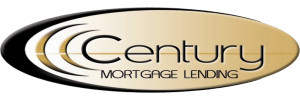Homebuyers And Those Refinancing Stand to Benefit From Zero-Cost, Zero-Fee Mortgages
August 10, 2018, Birmingham, Mich.—Are you paying closing costs when you purchase or refinance your home? You shouldn’t be.
Century Mortgage Lending is considered Michigan’s leader in NO POINT, NO COST AND NO FEE MORTGAGES. Many homeowners and new home buyers may not realize that rolling the closing costs into your mortgage balance is simply an indirect way the lender charges for the closing costs. Instead, ask your lender to pay the costs right down to the Fed Ex fees-and you could save thousands of dollars in closing costs. Sound too good to be true? It’s done every day.
Buying and refinancing a home can be a challenging process. Homeowners are faced with fees for origination points, appraisals, title insurance, credit checks, recording, underwriting and many more. Analyzing the itemized fees alone is enough to make your head spin.
Paul Gonyea, of Century Mortgage Lending, suggests that homeowners ask for a zero point, zero cost mortgage program and then obtain an interest rate quote for either a fixed or adjustable rate mortgage. The interest rate with no costs should be between one-eighth and one-quarter percent higher than if you were paying the closing costs yourself.
In most cases, Gonyea said, its best to opt for a slightly higher interest rate and keep your money in your pocket. “Let’s do the math. If we compare a $250,000 mortgage with about $2,200 in closing costs at 5 percent, to a $250,000 mortgage with a rate of 5.125 percent where you don’t pay closing costs, the difference in principal and interest payments is about $19 per month.”
Paying $2200 in closing costs at closing to save $19 per month does not make sense for most people because the break-even point is estimated at 9.65 years. It’s even more if you consider the time value of your money and the interest portion of the payment that is tax deductible. Gonyea noted that most people won’t be in the home or mortgage a decade later, so it often makes better business sense to avoid those closing costs. Remember, if interest rates improve, it is possible to refinance at zero costs again, giving you the rate without paying costs again…a win/win.
When seeking a zero point, zero cost mortgage, it’s important to do your research. Many banks and mortgage companies will simply not offer the program, Gonyea said, and look out for lenders who claim you will have no “out of pocket” costs. They are likely rolling the closing costs in on top of the principal balance and making your mortgage balance higher, so you are indirectly paying for the costs anyway. The only drawback to the zero cost mortgage may be that it works best for mortgages of $150,000 and above.
“The bottom line is that zero closing costs mortgages should at least be a consideration,” said Gonyea. “After all it’s not magic or rocket science, it’s just a way to make sure the numbers work for you in the short run and long-term as well.”
For more information, contact Century Mortgage Lending at 1945 Southfield Rd. Birmingham, MI 48009, Centuryml.com or call 248-258-4977
